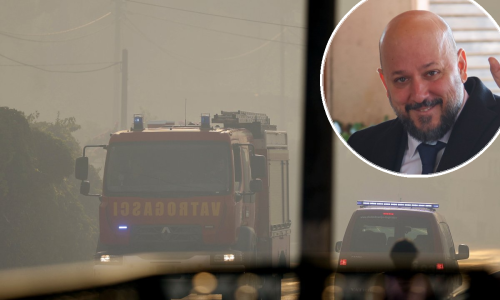Even though Croatia has entered a recession again, government ministers believe the negative trends can be reversed and expect the first results by the end of the year.
First Deputy Prime Minister and Economy Minister Radimir Cacic told reporters that he was not pessimistic despite data indicating a 1.3% GDP decline in the first quarter of this year, but that he was not satisfied with the pace of changes, which was why the first results of the government's measures would be visible only towards the end of the year.
"Croatia has been in a constant recession since 2008, and estimates for the first quarter projected a GDP decline of between 2% and 3%, so the 1.3% decline is a negative wave that has spilled into the first quarter," Cacic said after today's government session.
The bad thing is that there will be no serious progress in the second quarter either, no real projects that could kick-start the economy, he warned.
He added that the actual results would be seen in the fourth quarter.
Croatia hit rock-bottom in April, with the highest ever unemployment figures. Progress in that area will be seen in April next year, when it will be known if the number of jobless people has decreased. The same goes for solvency, which is improving but not enough, he said.
Cacic blamed the slow progress on the slow reorganisation of public companies, lack of projects, the media, politicians and business people. "There is an atmosphere of depression and the prevailing opinion is that nothing can be done," Cacic said, adding that people were not used to assuming responsibility.
Responding to a reporter's remark that big projects had been announced for early June, Cacic said that he had not talked about big projects but about a big number of small projects, because big projects had not been prepared yet.
"Tenders are yet to be announced for big projects, such as the thermoelectrical power plant Plomin, for which a strategic partner is being sought. The project amounts to 800 million euros and I believe that today a decision will be made on an environmental permit which is the basis of the tender," he said.
Finance Minister Slavko Linic said the main reason for the recession was the energy sector's importing electricity rather than producing it. "If we change our habits and start producing instead of importing, the negative trends can be changed," Linic said, adding that the government could and should influence it.
The national railway operator, too, is preoccupied with its internal problems and restructuring instead of investing in the equipment and renovation of the existing railway lines, Linic said, adding that the situation in the water management company Hrvatske Vode was similar.
Linic said he believed that the government's projection of this year's GDP growth of 0.8% was still attainable.
The GDP decline is due to structural problems and irresponsible economic policies, but with the help of good tourism results and serious investments in the energy, water supply and railway sectors, it can be changed into a positive trend by the end of the year, said Linic.
Entrepreneurship and Crafts Minister Gordan Maras said he was confident that the Croatian economy would overcome the negative trends by the end of the year thanks to the government's incentives for small and medium-sized businesses, the retained credit rating, and bank loans with the most favourable interest rates for small and medium-sized businesses.
Maras said that for the first time in four years there were more new businesses than closed ones. Currently the number of newly started businesses exceeds the number of closed businesses by around 300, he said, adding that this was a sign that changes were happening.



































